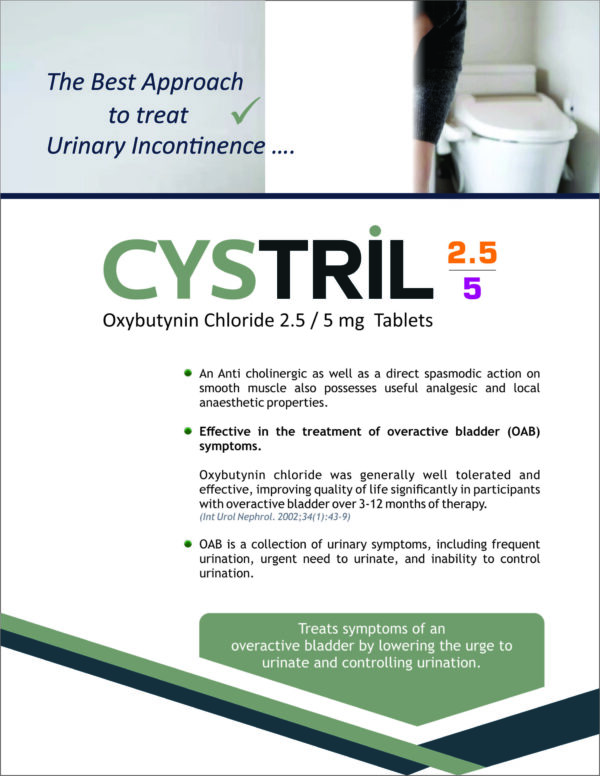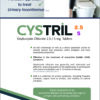Oxybutynin Chloride (2.5 mg / 5 mg)
Oxybutynin is an anticholinergic agent that works by relaxing the muscles of the bladder, reducing spasms and improving bladder control.
Uses
- Overactive Bladder (OAB):
- Helps manage symptoms like frequent urination, urgency, and urinary incontinence.
- Reduces bladder contractions and increases bladder capacity.
- Neurogenic Bladder Disorders:
- Used to treat bladder dysfunction caused by neurological conditions like spina bifida or spinal cord injury.
- Adjunct in Chronic Kidney Disease (CKD):
- Controls bladder overactivity to reduce urinary complications that may affect kidney function.
Indications
- Overactive bladder with symptoms of urinary urgency, frequency, and incontinence.
- Neurogenic bladder conditions associated with detrusor overactivity.
- Supportive therapy for bladder management in patients with nephrological or urological disorders.
Key Benefits
- Improves bladder control and reduces urinary accidents.
- Enhances quality of life by reducing the frequency of urination.
- Helps manage bladder function in patients with underlying neurological or kidney-related conditions.
Precautions
- Contraindications: Avoid in patients with untreated glaucoma, intestinal blockage, or severe colitis.
- Side Effects: May cause dry mouth, constipation, dizziness, and blurred vision.
- Use cautiously in elderly patients and those with kidney or liver impairment.
Dosage and Administration
- Adults: 2.5 mg or 5 mg tablet, two to three times daily, as prescribed by a physician.
- Children: Dose adjustment based on weight and clinical condition.
- Swallow tablets whole with water; do not crush or chew.










